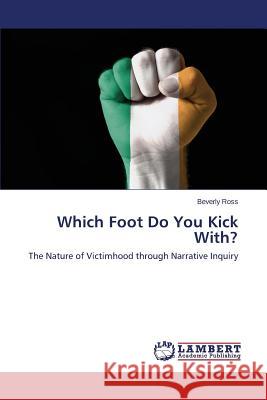Which Foot Do You Kick With? » książka
Which Foot Do You Kick With?
ISBN-13: 9783659759826 / Angielski / Miękka / 2015 / 160 str.
Members of communities residing in Northern Ireland have been exposed to conflict for the last 30] years, which is commonly referred to as The Troubles. This conflict is rooted in disputes between Catholics (Nationalists) favoring a unified Ireland and Protestants (Unionists) who support Great Britain's dominion. Despite the 1998 Good Friday Peace Accord, it is likely that the political solution of the accord did not remedy the socio-cultural rift between these two groups. Young Protestant and Catholic adults were interviewed to determine the degree to which these attitudes and beliefs continue to divide them literally and philosophically. A shared identity conceptualized as Victimhood emerged through their narratives. By using the social identity theory as the paradigm by which Victimhood was constructed, these nascent themes reinforced that the etiology and maintenance of collective identities are influenced by multiple factors but but are specifically related to political, religious, geographic, and institutional influences. Symbolically, the question, "Which foot do you kick with?" is used to identify the religious and political identities of these young adults.
Members of communities residing in Northern Ireland have been exposed to conflict for the last 30+ years, which is commonly referred to as The Troubles. This conflict is rooted in disputes between Catholics (Nationalists) favoring a unified Ireland and Protestants (Unionists) who support Great Britains dominion. Despite the 1998 Good Friday Peace Accord, it is likely that the political solution of the accord did not remedy the socio-cultural rift between these two groups. Young Protestant and Catholic adults were interviewed to determine the degree to which these attitudes and beliefs continue to divide them literally and philosophically. A shared identity conceptualized as Victimhood emerged through their narratives. By using the social identity theory as the paradigm by which Victimhood was constructed, these nascent themes reinforced that the etiology and maintenance of collective identities are influenced by multiple factors but but are specifically related to political, religious, geographic, and institutional influences. Symbolically, the question, "Which foot do you kick with?" is used to identify the religious and political identities of these young adults.











